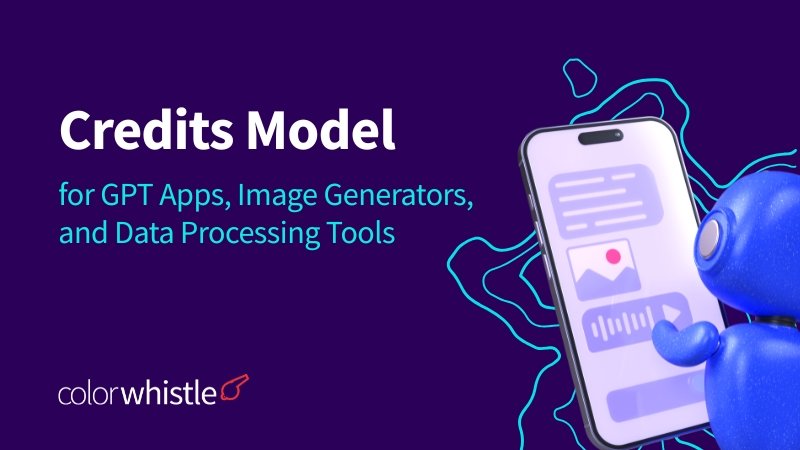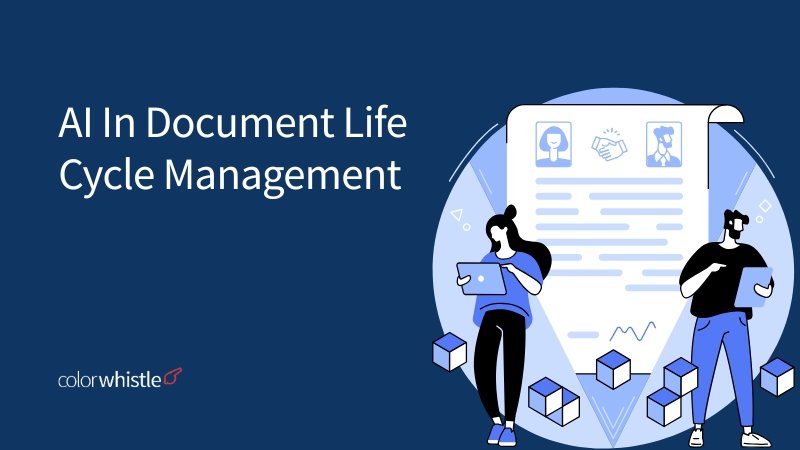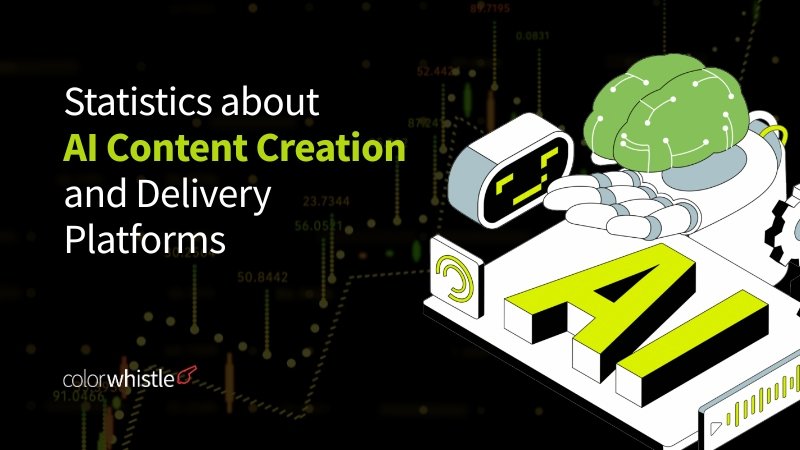Did you know?
Recent statistics reveal that 92% of executives anticipate implementing AI-enabled automation in workflows by 2026, underscoring its transformative potential.
Workflow automation has evolved from basic digital tools to intelligent systems capable of optimizing complex business processes. The integration of artificial intelligence (AI) is revolutionizing this landscape, enabling businesses to streamline operations, reduce errors, and enhance decision-making.
AI integration services are driving this shift, combining machine learning and natural language processing to create adaptive workflows that respond dynamically to changing needs. ColorWhistle, with expertise in AI integration services, can help organizations seamlessly implement these technologies, ensuring smooth transitions and optimized processes.
TL;DR
This blog is ideal for mid-to-large enterprises and digital-forward industries seeking scalable AI integration services to modernize workflow automation and stay competitive.
- AI workflow automation is reshaping work, with 92% of execs planning implementation by 2026.
- Current trends include intelligent process optimization, predictive analytics, NLP, RPA enhancements, adaptive systems, and edge computing.
- Key benefits: reduced errors, faster decisions, personalized workflows, and improved productivity.
- Challenges: legacy system integration, data privacy, and ethical concerns.
- Strategic AI adoption includes employee training, citizen-developer programs, and performance tracking.
- Industries like healthcare, finance, manufacturing, and retail already reap AI automation benefits.
By adopting AI-driven automation tools, businesses not only streamline repetitive tasks but also enhance decision-making and productivity, paving the way for a smarter and more agile future of work.
The Current State of AI in Workflow Automation
AI workflow automation is rapidly transforming business operations, with 60% of organizations already utilizing AI-driven tools to streamline processes and analytics.
By 2026, 74% of businesses plan to increase AI investments, leveraging its capabilities to enhance productivity and reduce inefficiencies.
AI-powered workflow automation offers significant benefits, including
- Eliminating redundancies, improving accuracy, and freeing employees to focus on strategic tasks.
- It enables faster decision-making through predictive analytics and optimizes resource utilization.
- As companies embrace AI integration services, they gain a competitive edge by automating repetitive tasks and creating adaptive workflows that respond dynamically to changing business needs.
Also Read
Emerging Trends in AI Workflow Automation for 2026
AI workflow automation trends will revolutionize businesses by optimizing processes, enhancing productivity, and enabling real-time decision-making across industries. Let’s discuss
Intelligent Process Optimization
AI integration enhances workflow automation by optimizing complex processes using advanced algorithms and machine learning. Businesses leverage AI-powered automation tools to streamline operations, reduce redundancies, and improve efficiency across departments, particularly in data-heavy tasks like data entry and analysis.
In manufacturing, AI-powered automation platforms optimize production lines by analyzing real-time data to identify bottlenecks and adjust workflows dynamically. For instance, predictive maintenance systems prevent equipment failures by scheduling timely repairs, saving costs and boosting efficiency.
Predictive Analytics and Decision Intelligence
AI-driven predictive analytics enables businesses to anticipate trends and make informed decisions. By analyzing vast amounts of unstructured data, AI systems offer actionable insights, boosting productivity and enhancing workflow management.
Financial institutions use predictive analytics to detect fraudulent transactions by analyzing patterns in vast datasets. For example, credit card companies leverage AI algorithms to flag suspicious activities before they escalate, ensuring customer trust and reducing risks.
Natural Language Processing in Workflow Management
Generative AI and NLP technologies are transforming workflow automation software by enabling seamless communication between systems and users. These advancements allow businesses to automate processes involving unstructured data, such as customer queries or document processing.
Customer service platforms like chatbots powered by NLP automate query resolution. For instance, AI-driven chatbots in e-commerce can process unstructured customer queries, provide personalized recommendations, and escalate complex issues to human agents when necessary.
Robotic Process Automation (RPA) Enhancement
RPA combined with AI capabilities is revolutionizing traditional automation. Adaptive RPA tools automate repetitive tasks while integrating intelligent decision-making for complex workflows, reducing errors and improving scalability.
In healthcare, RPA tools enhanced with AI capabilities automate repetitive tasks like patient data entry and claims processing. AI integration allows these systems to handle exceptions intelligently, improving accuracy and reducing administrative workload.
Also Read
Adaptive and Self-Learning Systems
AI-powered workflow solutions now include self-learning systems that evolve with changing business needs. These adaptive technologies optimize workflows dynamically, ensuring continuous improvement in business process automation.
Retail businesses use adaptive AI systems to personalize marketing campaigns. These systems analyze customer behavior in real time and adjust promotional strategies dynamically, increasing conversion rates and customer satisfaction.
AI-Driven Personalization in Workflows
AI algorithms enable personalized workflows tailored to individual user preferences or business requirements. This trend boosts efficiency by automating workflows that align with specific organizational goals.
Streaming platforms like Netflix use AI models to personalize content recommendations based on user preferences and viewing history. This personalization enhances user engagement and retention rates.
Edge Computing for Faster AI Processing
Cloud-based workflow automation platforms are increasingly adopting edge computing to process data closer to its source. This reduces latency, enhances real-time decision-making, and supports AI-driven process automation effectively.
Edge computing enables real-time customer insights in brick-and-mortar stores. For instance, NVIDIA’s EGX platform powers Deep North’s AI software, which analyzes video footage from store cameras to generate heatmaps, track customer traffic, and identify peak checkout times. This localized processing improves operational efficiency and enhances the in-store shopping experience by delivering actionable insights without relying on cloud infrastructure
Challenges and Considerations
- Integration with Legacy Systems – Many businesses face difficulties integrating AI technologies into outdated infrastructure without disrupting operations.
- Data Security and Privacy Concerns – The use of AI systems raises issues around safeguarding sensitive information within automated workflows.
- Ethical Considerations in AI-Driven Automation – Ensuring ethical AI practices, such as explainable AI models, is crucial to avoid bias or unintended consequences in automated decision-making
Implementing AI Workflow Automation
Adopting AI workflow automation requires strategic planning, workforce training, and performance measurement to streamline processes, boost productivity, and ensure business success.
- Adopt robust automation platforms powered by advanced AI technologies.
- Identify high-impact areas like task automation or workflow optimization for immediate benefits.
- Provide training to employees to work alongside intelligent automation tools.
- Implement citizen-developer programs to simplify automation adoption across departments.
- Track workflow automation statistics such as reduced operating costs and improved productivity.
- Evaluate the success of AI-powered solutions using performance metrics and data analytics.
Industry-Specific Applications
Healthcare – Automated workflows optimize patient record management and streamline diagnostic processes using intelligent automation tools.
Finance and Banking – Predictive analytics powered by AI enhances fraud detection, compliance checks, and customer service automation.
Manufacturing – RPA combined with edge computing automates supply chain processes, boosting operational efficiency.
Retail and E-commerce – Generative AI personalizes customer experiences while automating inventory management workflows
Wrap Up
AI integration services are revolutionizing workflow automation, enabling businesses to optimize operations, streamline processes, and unlock unprecedented levels of productivity. With advanced technologies like machine learning and predictive analytics, organizations can automate complex workflows, reduce redundancies, and make data-driven decisions in real time. This transformative power not only boosts efficiency but also empowers employees to focus on strategic tasks, fostering innovation across industries.
As we prepare for the future of work in 2026 and beyond, adopting scalable AI systems and cloud-based platforms will be essential. Workforce upskilling and ethical AI practices will ensure smooth integration while addressing challenges like data security. By using AI integration services effectively, organizations can stay competitive in a rapidly evolving digital landscape and build a future-ready workplace that thrives on collaboration between humans and intelligent systems.
Stroll through our ColorWhistle pages to discover our tailored services. Ping us or call us at +1 (919) 234-5140, and we’ll be on it like paint on a canvas! Our services are as unique as your business let’s make magic happen together!
What’s Next?
Now that you’ve had the chance to explore our blog, it’s time to take the next step and see what opportunities await!





